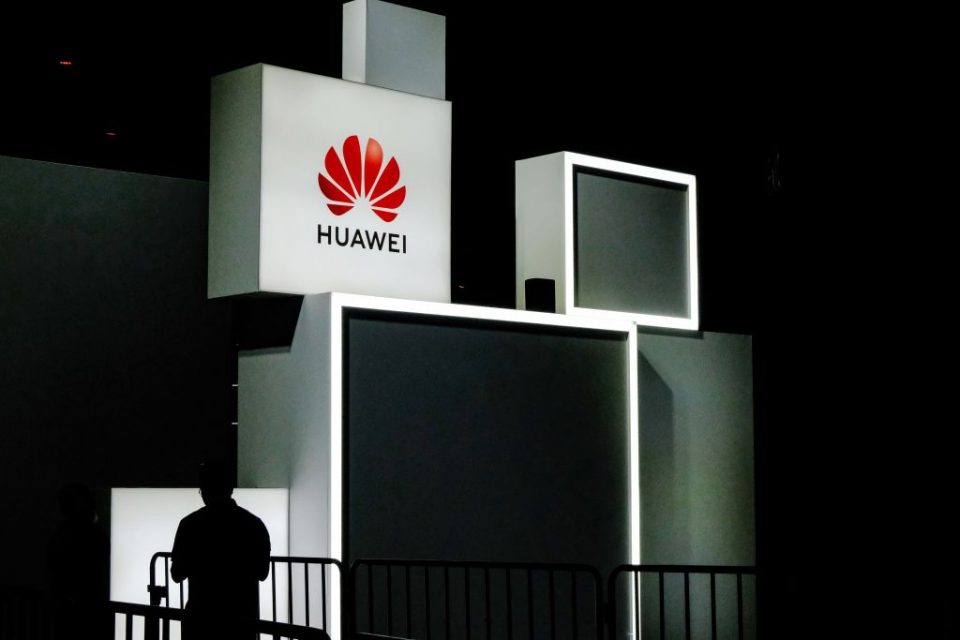Hua you gonna call? Why Britain’s 5G infrastructure decision has real implications

Britain looks set to decide on Chinese titan Huawei’s role in 5G infrastructure next week. Political Editor Catherine Neilan looks at why it matters so much
If campaigning is poetry, governing is prose – so goes one of the iron rules of politics. Tough, controversial decisions must be made, and one of Boris Johnson’s first will be to decide whether or not Huawei are granted access to the UK’s 5G network.
A decision is expected next week and it could have serious implications for the UK’s relationship with some of its closest allies – as well as for British business.
Read more: Britain to make Huawei decision soon
As we report today, the Prime Minister is thought to be leaning towards giving Huawei the greenlight for limited involvement, with former and current Cabinet sources stressing that a decision will be made on an “objective” basis, unswayed by pressure from foreign concerns.

As well as restrictions around exactly where and to what extent Huawei is within the network, sources indicated that there could be time limits that will allow for other operators to take over further down the line.
The ability to allow for future “diversification” is understood to be crucial, with Number 10 concerned not to be fostering a monopoly.
Last week Boris Johnson urged the US to come up with “alternatives”. Multiple sources pointed to the resulting silence as speaking volumes. “We’ve asked what has the US got coming out of Silicon Valley – and it’s just been a shake of the head,” one government source said. “It’s a market failure.”
But the decision has to be taken “here and now”, he added. Downing Street is reluctant to risk the damage to the economy – it could be at least two years – with government sources indicating the cost would run into the billions.
The move is unlikely to be welcomed in Washington, which has been lobbying heavily for the UK to block Huawei, even submitting a dossier that claimed it would be “madness” to go ahead.
But the dossier has been shrugged off by those in Whitehall. “The idea that there was anything in there that we didn’t already know is ridiculous,” a source told City A.M. Another source pointed to fundamental differences between the UK’s “architecture” and the US. “What you’re building upon is very different.”
However it is not a straightforward decision, even working on the basis that any risk posed by Huawei can be mitigated as industry and security agencies believe. Johnson risks upsetting the US just at a critical point in our future relationship, as well as being ejected from the multilateral Five Eyes alliance, regardless of whether the risk is real.
Sources told City AM that London was being caught up in Washington’s trade war with Beijing – and insist Downing Street must not be held ransom, or risk setting a dangerous pattern in our nascent trading relationship.
“The US thinks China needs to be contained. Europe can’t help militarily, but it can economically,” said one former minister. “There will always be something – this is what we are just starting to realise about being an independent trading nation,” said a current frontbencher.
Others involved in the decision have pointed to the fact that Huawei is already in the network, both as proof of the way the partnership can and has been managed and the wider implications of deciding to block the Chinese firm. “If we decide not to have them involved, it’s not just a case of blocking them – it’s a case of stripping them out, if we even can,” said one.
But, despite reassurances from industry – Vodafone and BT have both insisted any potential risks can be managed – and even intelligence from CCHQ, some MPs are concerned that not enough is understood about exactly what Huawei’s involvement entails.
“The question is not just about the risks today, but in five or 10 years,” explains Tom Tugendhat, a backbench MP who is running for re-election as the foreign affairs committee chair. “While the risks can be managed, each patch or upgrade will absorb more and more effort. The UK will have to employ people to defend our network when they should be innovating. The opportunity cost is real.”
Another, who describes himself as a tech enthusiast, urged the government to bide its time. “It’s a case of which is the bigger concern – the national security risk or the economic risk,” he said. “A lot of the risk is unknown, 5G is new, we don’t really know how it can be manipulated yet – and China has a reputation for cyber-manipulation.”